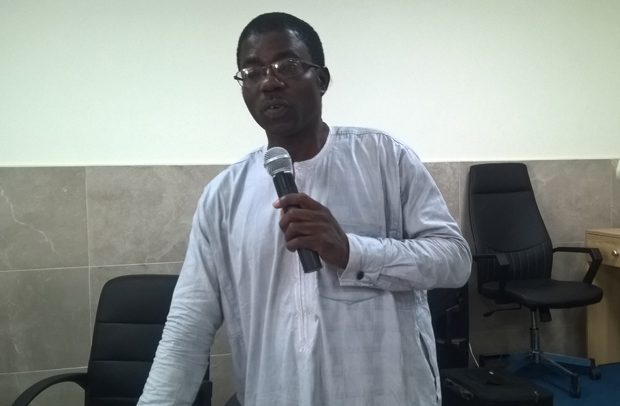Group CEO MUDI making his submissions at the free hajj school launch
The Chief Executive Officer (CEO) of the Muslim Ummah Development Initiative (MUDI), Hajj Abdel-Manan Abdel-Rahman, has called on government to consider incorporating Islamic financing laws into the current legal framework of the financial sector in order to provide more business options to citizens.
The adoption of such laws, he said, would also provide legal guarantees to foreign investors from the ‘Muslim world’ that might want to transact business on the premise of Islamic financing laws.
According to Islamic laws, usury or interest is forbidden. The Islamic financial system, therefore, discourages all business activities that are carried out on interest basis.
It rather encourages investments in the form of equities, profit and loss sharing partnership agreement and fixed income instruments such as partial ownership of assets.
The system also prohibits investments in illegal activities such as sale of alcohol, gambling and mortgaging, among others.
Mr Abdel-Rahman said, “United Kingdom, 21 years ago incorporated Islamic financing law and established Islamic Bank with less than two percent Muslim population at that time. South Africa with 1.5 percent of Muslim population has also incorporated the law in their system.”
The CEO, who disclosed this at the launch of the Accra MUDI Fee Hajj School, also called on more Ghanaians to support the implementation of the laws by actively participating in the process.
Present at the programme was the MUDI Group Chairman, Haruna Alhassan, who urged Muslims community to develop the mindset of investing in businesses.
Such a mindset, he said, is crucial in ensuring that Muslims generate enough income to embark on philanthropic initiatives that are aimed at improving lives.
By Issah Mohammed and Mohammed Brimah

